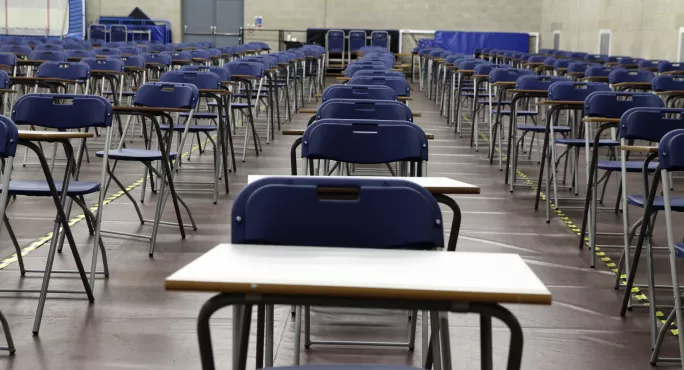Today, parents discover if they have got their children into the secondary school of their choice. But the early days of the transition to secondary school could be made more difficult for children who will be expected to resit tests they didn’t pass at the end of primary.
Without the publicity given to the grammar school debate, the government has been quietly, and probably unintentionally, preparing to reintroduce another part of the old selective system - a kind of accidental 11-plus. Only this time all children will sit it and it has massive implications for secondary and primary schools.
This is caused by the so-called “Year 7 resit”. As we understand it, any student not getting the equivalent of a level 4b in their Year 6 Sats (not that we have any real way of verifying that equivalence given the multiple chaotic changes to assessment) will be expected to resit those tests in the first term of secondary school. Secondary heads will be accountable for their results, with the data published in RaiseOnline.
So let’s follow the consequences of this. With the best will in the world, these students are going into a different set or stream in their first term, to be coached for the resits. This means that the Year 6 Sats will have similar, though milder and shorter, sorting effects to the old 11-plus.
I firmly believe that pupils need a good grasp of maths and English to access the secondary curriculum but the place to get this right is in primary school (where it is increasingly being achieved). And the way to get this right is by investing in the quality of teaching not by inventing new tests. The government’s obsession with tests betrays both a lack of imagination and, strangely, a lack of power. It lacks the ability to persuade teachers or the financial resources to support them. Tests and exams have their place, of course, but they’re not the only tool in the box.
‘More pressure and more revision’
So we create some of the effects of the 11-plus. Let’s follow the consequences still further. It used to be that Year 6 Sats only really mattered to the school but this dramatically increases their stakes for children and parents. This means more pressure, more revision, more tutoring. If you feared that some students already had their love of learning coached out of them by relentless drilling in Years 5 and 6 then consider what this new environment could bring. “Secondary-ready” means numerate and literate; it also means confident, curious and enquiring.
The government tells us that the pressure is all in the minds of teachers. If only staff didn’t “big things up” and were a little more jolly about these tests on which their jobs and livelihoods depend then children would take them in their stride. But remember this, the Conservative manifesto in May described the key stage 2 Sats for the first time as “end of primary exams”. There is no doubt where the pressure is coming from.
Many secondary leaders are rightly focusing attention on the English Baccalaureate, for which the consultation is just finished, but these lesser known changes in Year 7 will have a major effect on the culture of education. That is almost certainly their intent, of course. They are, however, part of a massive, late-notice and poorly planned overhaul of assessment which is replacing clarity with turmoil, focus with panic and learning with exam prep.
Russell Hobby is general secretary of the NAHT headteachers’ union. He tweets as @russellhobby
Want to keep up with the latest education news and opinion? Follow TES on Twitter and like TES on Facebook




